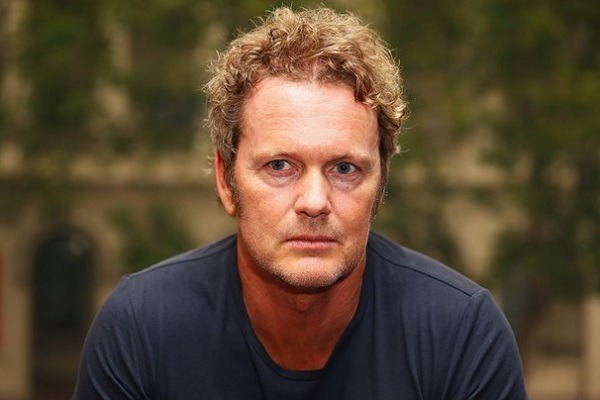Australia’s #MeToo reckoning took a bit of time to gather pace.
With absolute respect and admiration for the women who spoke out when the hashtag first came to Australian shores in 2017, I think it’s fair to say that a more fulsome reckoning only took hold in the last few months following former political staffer Brittany Higgins’ allegation that she was raped in then Minister of Defence Linda Reynolds’ office.
So too, it seems, Australia’s “himpathy reckoning” has also taken a bit of time to gather pace. But now it’s in full swing.
What do I mean? In her 2017 book, Down Girl: The Logic of Misogyny Cornell philosophy professor Kate Manne coined the term “himpathy”. Like “mansplaining” and “manspreading” before it, other new words that entered the feminist lexicon and gave women a word for something they had long experienced but struggled to articulate, himpathy was quickly embraced.
It is the inappropriate and disproportionate sympathy powerful men often enjoy in cases of sexual assault, intimate partner violence, homicide, and other misogynistic behaviour.
Manne described it as “misogny’s oft-overlooked and equally pernicious underbelly”.
A year after coining the term, and following Supreme Court nominee Brett Kavanaugh’s tearful, fiery and unrepentant appearance at his confirmation hearing — at which he refuted the credible historical sexual assault allegations from Dr. Christine Blasey Ford — Manne asked if the United States was in the midst of a “himpathy reckoning”.
“What makes himpathy so difficult to counter is that the mechanisms underlying it are partly moral in nature: Sympathy and empathy are pro-social moral emotions, which makes it especially hard to convince people that when they skew toward the powerful and against the vulnerable, they become a source of systemic injustice,” wrote Manne in The New York Times.
“So, for those for whom himpathy is a mental habit prompted by biased social forces, and not an entrenched moral outlook, the first step to solving the problem is simply learning to recognize when it’s at work, and to be wary of its biasing influence.”
My question is this: Is Australia – following a trio of emotional displays from high-profile men accused of serious sexual misconduct — now in the midst of its own “himpathy reckoning”.
Are Australians, at long last, becoming more adept at recognising when himpathy is at work — and proving wary of its biasing influence?
I’m cautiously optimistic the answer is yes.
First, in early March Christian Porter gave a tearful press conference, during which he outed himself as the senior cabinet minister against whom historical rape allegations had been made (allegations he strenuously denies).
“Imagine if it’s not true,” begged Porter, whilst sounding the alarm that “any person in Australia can lose their career, their job, their life’s work, based on nothing more than an accusation that appears in print”.
Then last week, disgraced former Melbourne Lord Mayor Robert Doyle appeared on Nine’s A Current Affair to apologise, he said, for his long history of sexual harassment. “I have caused deep offence, I’ve caused hurt, I’ve caused pain, I’ve caused anguish to a lot of people and I’m here to say I’m so sorry. I’m so very sorry,” he said.
While an “emotional” Doyle said he did not want to be perceived as “a victim” and denied his purpose was to illicit sympathy, he oddly failed to contact any of his victims directly to offer an apology.
What’s more, Doyle focused quite extensively on the price he had paid: his career, his marriage, his reputation all lay in tatters. And he shared that he had been hospitalised several times.
Finally, actor Craig McLachlan arrived on the scene this past Sunday night with, arguably, the most self-indulgent appeal for himpathy.
In an interview with Channel 7 entitled Horror Story, the actor cried, got angry and ranted about “the absolute demolition of his life” following allegations he had indecently assaulted fellow cast members. (Though McLachlan was acquitted of the charges last year, the magistrate, Belinda Wallington said she found the witnesses “brave” and “honest”.)
McLachlan claimed his accusers were jealous of his success and he had contemplated taking his own life. “In this post-Weinstein hashtag #MeToo world, I can’t win,” he whined.
Woe is the man accused of sexual misconduct who faces actual consequences. After a lifetime of privilege — an uninterrupted glide path which has given many powerful men the impression they can do whatever they want and get away with it — I’m sure it’s terribly upsetting, even downright distressing, to realise that the rules have changed….or at the very least are changing.
But these men and their appeals for himpathy, and the media outlets who provide them with platforms for their appeals, are increasingly out of step with a public that has far smaller reserves of himpathy than powerful predators have long relied on.
The backlash to all of the above was swift. Dare I say indicative of a “himpathy reckoning”?
When I was privately contacted by one of Doyle’s accusers who was furious that he had been provided with a platform to appeal for sympathy, I told her that the extent to which Doyle’s attempt at reputation rehab proved successful would indicate how far we’ve come in the years since she was abused by Doyle and his powerful protectors.
Not only are we being prompted to “listen to” and “believe women”, we’re also being challenged to view men’s appeals for himpathy through a new framework: to recognise when it’s at play and guard against its’ pernicious influence. And we as a society seem to be rising to that challenge.
Kristine Ziwica is a regular contributor.


